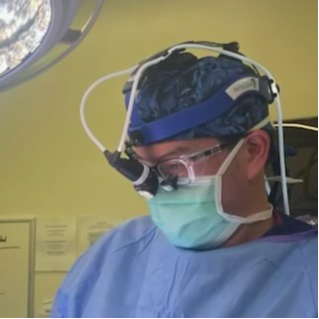Alright – so today we’ve got the honor of introducing you to William Tseng. We think you’ll enjoy our conversation, we’ve shared it below.
William, thank you so much for joining us today. Let’s jump right into something we’re really interested in hearing about from you – being the only one in the room. So many of us find ourselves as the only woman in the room, the only immigrant or the only artist in the room, etc. Can you talk to us about how you have learned to be effective and successful in situations where you are the only one in the room like you?
Treating an extremely rare cancer often puts me in a situation where amongst my peers I feel like the “only one in the room.” While being respectful of my colleagues for what they do, there is frequently a palpable sense of being regarded as less important due to the rarity or perhaps unfamiliarity with this disease that I treat. Priority is placed on what is more common and dare I say, what attracts the most attention. Even so, quietly, intentionally and confidently, for these often very complex and challenging cases, I have learned to be effective and successful, leveraging my specialized training, knowledge and experience and supported by the small circle of colleagues around the world who do recognize that this IS a priority, especially for the patients that are so deeply impacted by this disease. THAT is what drives me, the awareness that even if unpopular, what I do is important and in fact much needed.

Great, so let’s take a few minutes and cover your story. What should folks know about you and what you do?
I am a cancer surgeon and for more than a decade now, my focus has been on treating a rare cancer called sarcoma. These are cancers of the soft tissue, including fat, muscle and blood vessels. To remove these tumors, we perform some of the most difficult operations done on the human body, whether it is in the abdomen or the legs, arms or body wall. These operations can last for many hours and sometimes involve multiple teams. There are no textbooks to turn to or “routine” ways of doing sarcoma surgery – each case is different and challenging in its own way. And importantly, successful treatment of sarcoma is not just about “cutting it out” but requires a deep understanding of this rare disease, how it behaves, and how in some cases, we can incorporate other non-surgical therapies (e.g., new sarcoma specific drugs) to improve outcomes. Although many surgeons will recall an interesting sarcoma case (…from several years ago?), there are very few specialists like myself in the country and around the world who see, treat and think about this disease EVERY DAY. From the operating room, to clinic, to research and collaboration. As a sarcoma surgeon, yes, what I do can be physically, mentally, and emotionally tiring. But each day what inspires me are my patients, the amazing people that despite sarcoma are so resilient, brave and hopeful.
Looking back, what do you think were the three qualities, skills, or areas of knowledge that were most impactful in your journey? What advice do you have for folks who are early in their journey in terms of how they can best develop or improve on these?
1. Passion and focus on one area and giving it my all
2. Specific mentors I was very fortunate to receive training under
3. Supportive colleagues who share my enthusiasm
My advice is to find something you are genuinely passionate about, persist with it even against obstacles and failures and to surround yourself with mentors and colleagues that share this same passion!

Awesome, really appreciate you opening up with us today and before we close maybe you can share a book recommendation with us. Has there been a book that’s been impactful in your growth and development?
Recently – You are a Badass by Jen Sincero
Contact Info:
- Instagram: @sarcomasurgeon
so if you or someone you know deserves recognition please let us know here.




